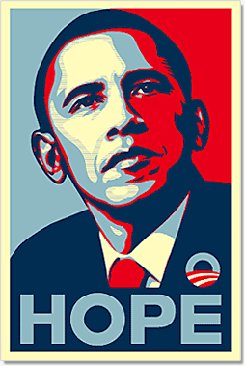Sunday 1 November, 5.30pm until 6.30pm, Upper Gulbenkian Gallery Keynote Controversies
 President Barack Obama inherited an American economy in severe trouble. Immediately upon entering the White House, Obama introduced the most wide-reaching state-led counter-crisis measures since the New Deal of the 1930s. The Obama administration’s ‘New New Deal’ includes bank bailouts, the largest peacetime economic stimulus package, a ‘toxic asset’ plan, government takeover of General Motors and new financial regulations.
President Barack Obama inherited an American economy in severe trouble. Immediately upon entering the White House, Obama introduced the most wide-reaching state-led counter-crisis measures since the New Deal of the 1930s. The Obama administration’s ‘New New Deal’ includes bank bailouts, the largest peacetime economic stimulus package, a ‘toxic asset’ plan, government takeover of General Motors and new financial regulations.
Obama has said that getting the economy back on its feet is his number one priority, and it’s likely that his handling of economic affairs will be a major factor in determining whether his presidency is considered a success. Many praised the new American president for taking bold action and showing dynamic leadership. Polls have showed that Obama’s personal popularity has remained high, but as the recession has dragged on and unemployment has continued to rise, a growing number have begun to question the effectiveness of his policies. Has Obama gone too far in increasing government spending, or not far enough? Are the resulting huge US government deficits a temporary phenomenon, or will they cause a fiscal crisis in the near future? Does his government’s ownership of car companies and banks provide just short-term restructuring assistance, or do such moves herald a greater direct role for the state in the economy?
This session will seek to cut through the superficial assessments about Obama’s popularity and examine to what extent his administration’s initiatives can not only address the immediate downturn, but lay a foundation for longer-term economic growth.
Listen to the session audio…
Other formats are available here
 | James Matthews management consultant; founding member, NY Salon; writer on economics and business |
 | Professor Iwan Morgan head of US Presidency Centre, Institute for the Study of the Americas, University of London; author, The Age of Deficits |
 | Carl Mortished world business editor, The Times |
| Chair: | |

|
Alan Miller
chairman, Night Time Industries Association (NTIA) |
Reform is badly needed, but people will still be greedy, banks will still need saving and a more stable system will entail less credit flowing through it. Mr Obama is eloquent but too often he does not tell it like it is.
Economist, 15 September 2009'History can not be allowed to repeat itself', Obama declares
Tim Reid, The Times, 14 September 2009Despite attempts by media figures to pin the blame for the current economic situation on President Obama, a recent ABC poll found that only a minority blame Obama for the recession.
Media Matters, 31 March 2009As the global economic downturn worsens, the industrialized nations are at odds over how to fight the crisis. Obama wants the Europeans to introduce additional stimulus programs, but Merkel insists Germany is already doing enough.
Christian Reiermann, Michael Sauga and Thomas Schulz, Spiegel Online, 13 March 2009 It takes more than money to revive an economy
It takes more than money to revive an economy
Why President Obama’s $787 billion recovery package won’t fire up the US economy — and might even make things worse in the long term.
Sean Collins, spiked, 18 February 2009